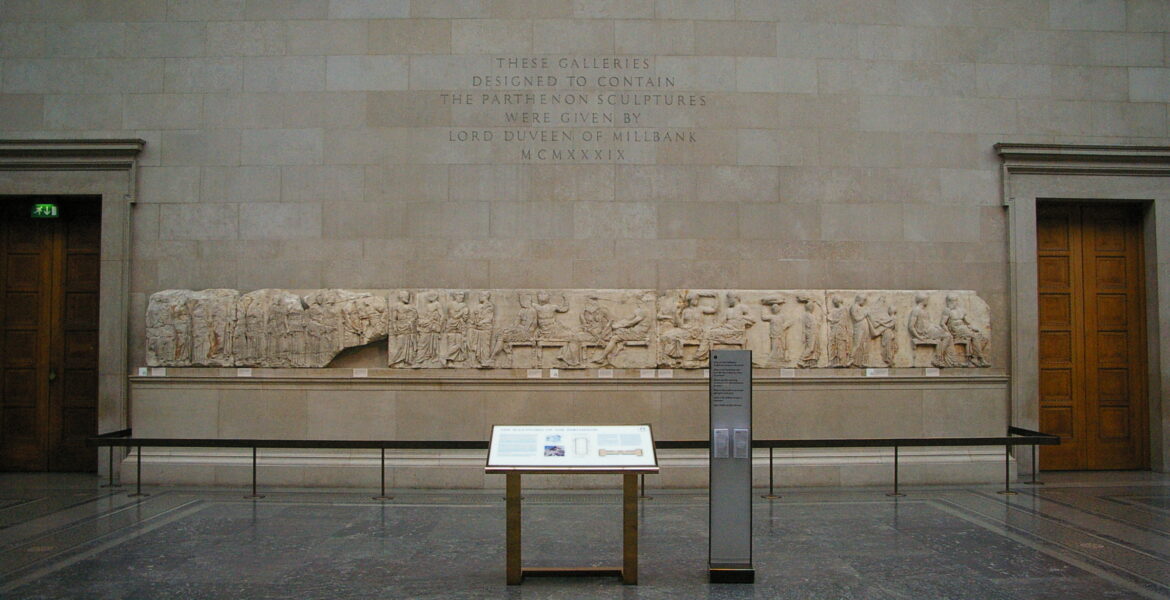On 2 March the former British Prime Minister, Boris Johnson, was a keynote speaker at a Global Soft Power Summit held in London during which he spoke on a wide range of issues including the vexed question of the “Elgin Marbles” as he called them.
In 2022 we learned that as a young student Johnson wrote an essay calling for the return of the Parthenon Sculptures taken by Lord Elgin and removed to the British Museum where they continue to be held.
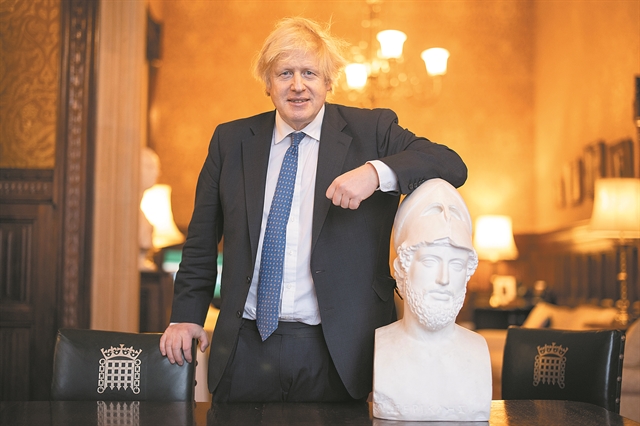
At the time I was not convinced that this ostensible Philhellene and Periclean admirer actually held that view when he entered public office and I said so in my op-ed piece in Greek City Times in July 2022 where I argued that “when it comes to the Parthenon Sculptures, it is apparent that the real Boris Johnson still stands with the British Tory establishment”.
Well, that skepticism has been vindicated.
Soft power is a term coined to describe the exercise by a state of international influence to produce outcomes by subtle persuasion rather than overt coercion. One obvious tool of soft power is cultural diplomacy and negotiation.
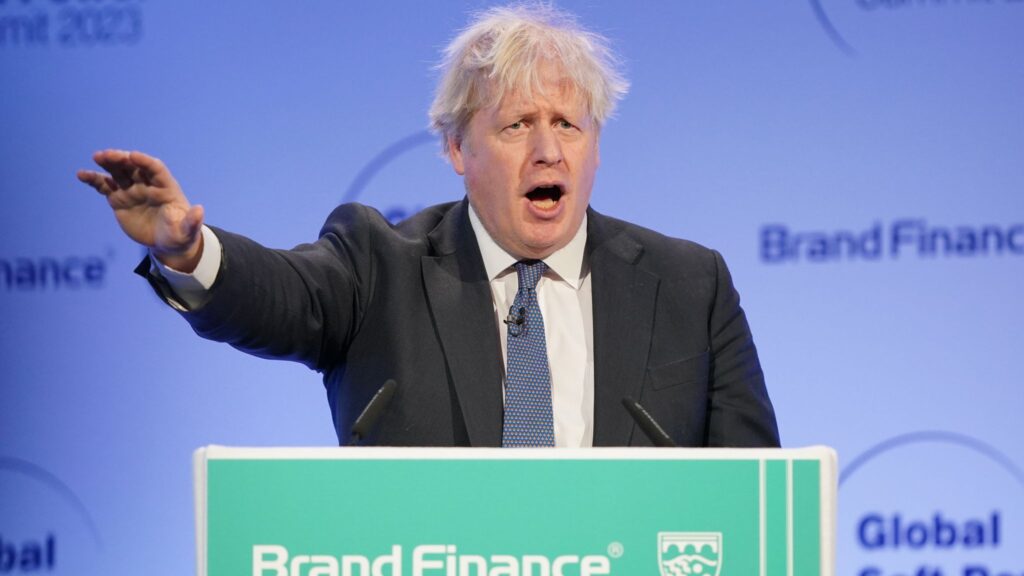
During his speech at the soft power conference, which one commentator described as a “series of crescendoing cries for attention that became almost tragic” Johnson was anything but subtle as he launched into a rambling and disjointed defence of British culture and singled out its museums, claiming that the world’s best museums are in London.
You could see where this was heading given the recent heightened media interest in the reported negotiations between the Chair of the Board of Trustees of the British Museum, George Osborne, and the Greek Prime Minister, Kyriakos Mitsotakis, over a possible cultural partnership for the reunification of some or all of the Parthenon Sculptures.
“The British Museum has more visitors per year than about seven whole EU countries. And it is that fantastic concentration of riches in one building that holds up a mirror to all of humanity and tells the story of the evolution of the human spirit. And so if you give back the Elgin Marbles to Greece then you leave a huge gap in that narrative and above all you have no answer in the years ahead to the theoretical claims for restitution from Egypt and Iraq, Syria, Lebanon, Turkey, Nigeria … everywhere whose treasures are housed in Bloomsbury. And suddenly in trying to please the world and correct thinking you deprive the world of one of its great treasures and cut some vital panels from its pageant of great human progress. Those gods and heroes came to our country in 1812 as refugees from the Ottoman kiln. They were going to be melted down to make cement and they became part of our lives. We can’t send them away any more than we can deport the 40% of Londoners who were born abroad.”
These utterances as well as his attempts to defend his shattered prime ministerial record left some observers perplexed. Tom Peck of The Independent newspaper nailed it when he wrote: “Johnson is no longer an embarrassment to his country, only to himself”.
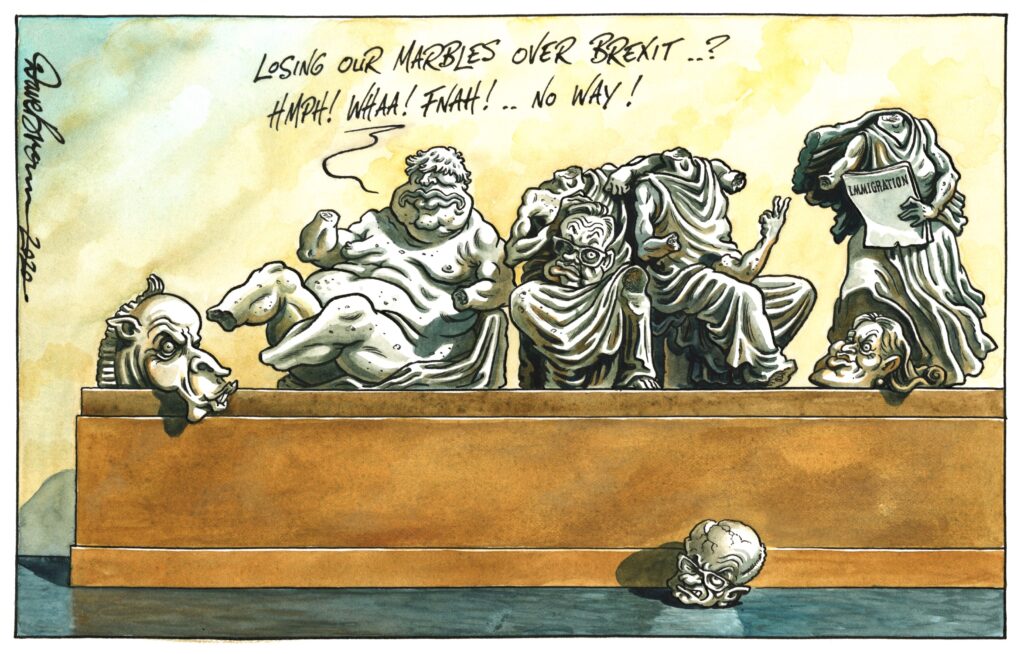
Johnson once again has rolled out the so-called ‘slippery slope’ argument that if the Parthenon Sculptures go back then the proverbial floodgates will open to all sorts of “theoretical claims” by other countries for restitution of looted cultural artifacts, notwithstanding that Greece’s historic claim is for the return of the sculptural decorative elements integral to the Parthenon.
As for so-called theoretical claims, what does Johnson think of the Benin Dialogue Group that has been convened to consider and (possibly) resolve the issue of the Benin Bronzes taken by British forces in a punitive military expedition in 1897 and now claimed by modern-day Nigeria?
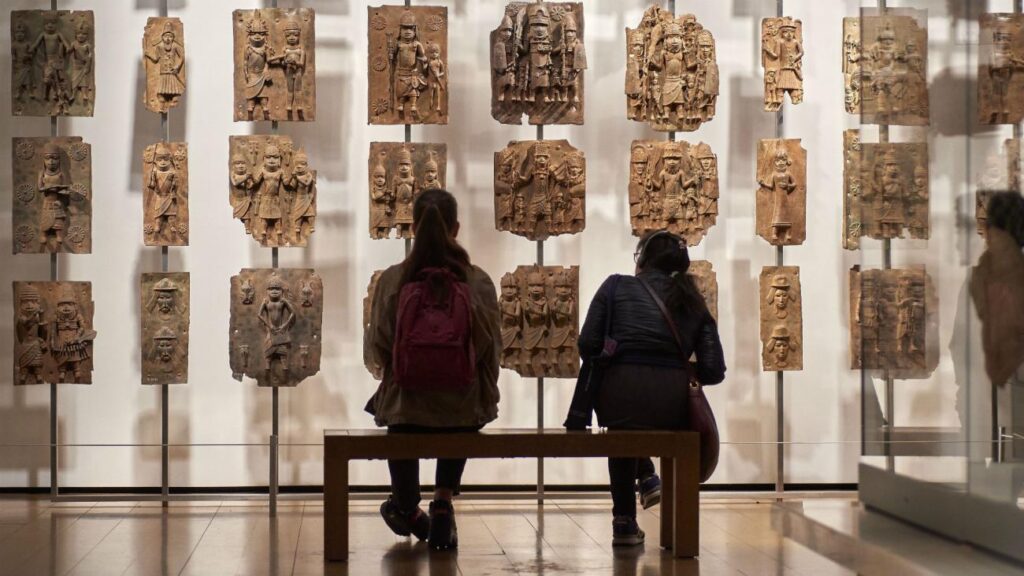
What of the sacred Maqdala manuscripts and other treasures seized by British soldiers in a military operation in Ethiopia and procured by a curator from the British Museum embedded with the British Army? They are not even on display in the museum.
It is clear that Boris Johnson’s shameful historical revisionism continues unabated.
In October 1998 Johnson wrote that “anyone who cares about civilisation should offer daily prayers of thanks to Lord Elgin who rescued so many treasures from the lime kiln when he went to Athens in 1801”.
According to this Oxford scholar, the sculptures were the “refugees” from that kiln, saved from an ignominious fate of being crushed and turned into ottoman cement. Never mind the inconvenient fact that the Parthenon still stands and the sculptures left on the monument have survived to this day.
In 2004, Johnson defiantly declared in the British Parliament that to send back the marbles would be to “rip the heart out of the British Museum which is one of the great cultural landmarks of Europe.”
He is also on record as describing the Duveen Gallery in the British Museum where the sculptures are kept in a cavernous and gloomy display as the “holy of holies, the innermost shrine of that cultural temple”.
Fast forward to 2023.
According to Boris, returning the sculptures would somehow deprive the world of one of its great treasures notwithstanding that they would be reunified with the surviving sculptures in the Acropolis Museum and be able to be viewed and studied in their proper context and in the glorious gaze of the Parthenon.
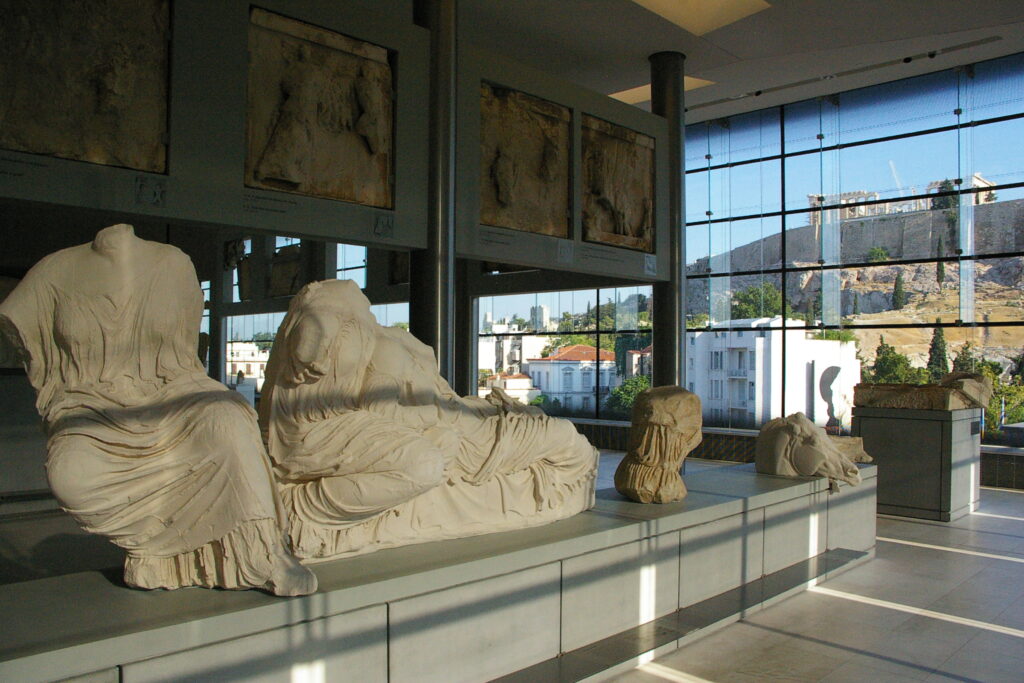
How would that amount to deprivation? Bloomsbury is not the sole repository of classical antiquity and the world will finally be able to see and appreciate the surviving Phidian marbled forms in their natural context.
But the pièce de résistance is the crass deportation analogy in which Johnson perpetuates the imperial myth spun by the British Museum that the sculptures now belong in London because they tell a different story to those in Athens. Just as Britain cannot deport its citizens who were born overseas, it must not and should not repatriate Greek cultural treasures forcibly and illegally removed from the Acropolis because they are now permanent residents in London.
I can only sympathise with The Independent journalist when he wrote, with a literal sigh, that if the organisers of the conference had allowed their keynote speaker to speak for even as little as two minutes more it is almost a certainty that the former prime minister would have been arrested for “exposing his own indecency”.
Boris Johnson has clearly lost his marbles.
But one thing is certain: the Greeks will eventually regain theirs.
George Vardas is the Arts and Culture Editor as well as the Co-Vice President of the Australian Parthenon Association and co-founder of the Acropolis Research Group.

